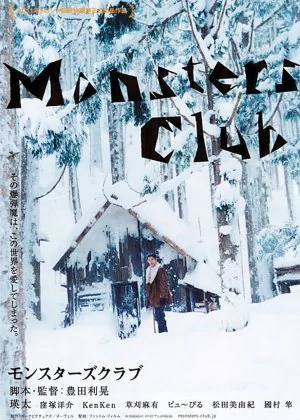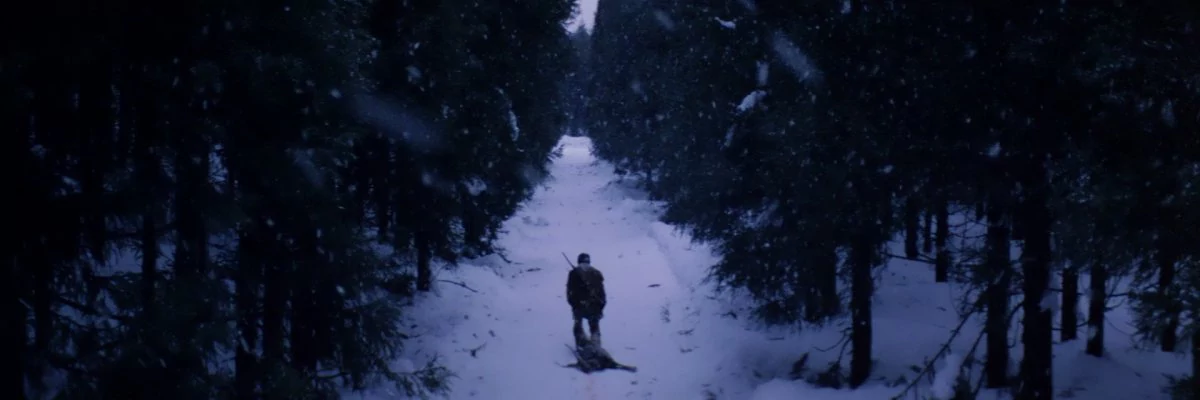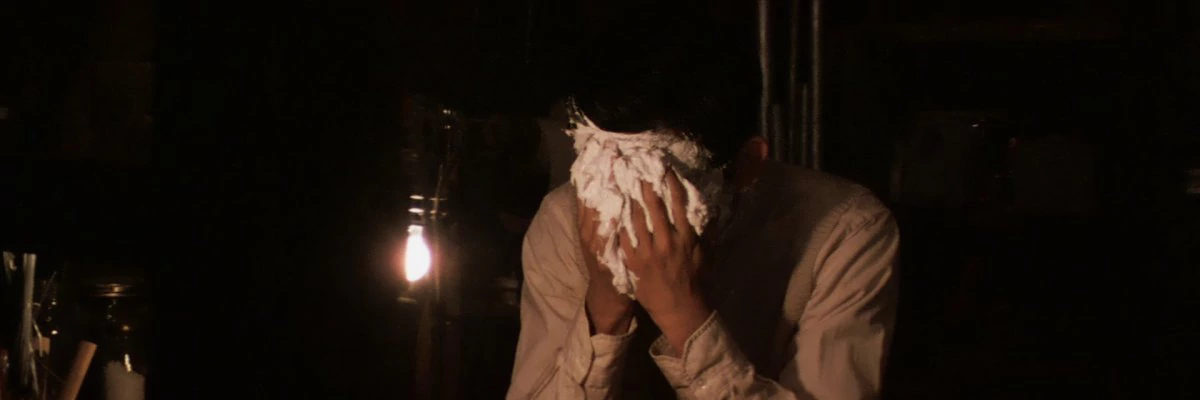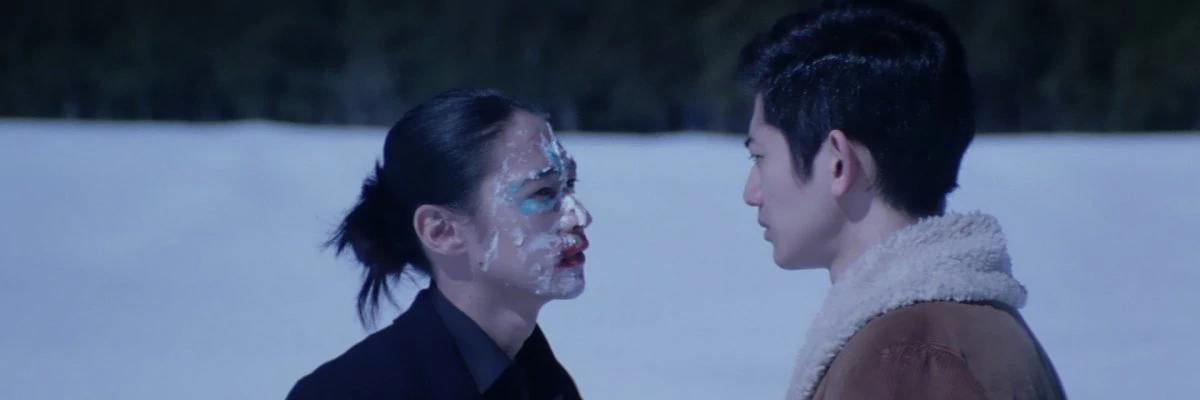Monsters Club

Toshiaki Toyoda is back on the scene and people better take notice. Yomigaeri no Chi was not just a desperate attempt to rekindle his lost career, nor was it Toyoda's final blowout before disappearing into complete anonymity. It's clear that the man still hasn't lost his heart for cinema and is far from ready to throw in the towel. With Monsters Club Toyoda picks up the thread and continues to expand his signature style, delivering what is arguably his best film to date.

Maybe more directors should take a sabbatical in prison, because it appears that it can have a pretty positive effect on a director's output. Not that Toyoda's pre-arrest films were bad, but I'm definitely liking the new Toyoda better. After his arrest for carrying "illegal substances" Toyoda suffered a forced 4-year setback. While the Japanese film industry started a slow decline Toyoda was left untouched by the cry for safer and more commercially-minded films. In a way both Yomigaeri no Chi and Monsters Club feel like a throw-back to the more daring Japanese output of 10 years ago.
Monsters Club starts out as a film that takes quite a few thematic cues from the recently deceased Koji Wakamatsu. A single individual (Ryoichi) distances himself from society and starts his own personal revolution. In a faraway cabin he builds homemade bombs and sends them to corporate executives. Even though the bombs seem quite effective against their targets, society itself doesn't really seem to take Ryoichi's actions seriously.
Little by little we find out about the reasons for Ryoichi's recluse, and it soon becomes apparent that Ryoichi's revolution is little more than a way to postpone facing more dreary personal problems. One by one his (mostly dead) relatives appear before him, further obfuscating the justifications of his actions and actively questioning Ryoichi's motivations.

Monsters Club is by far Toyoda's most attractive film to date. Even though Toyoda had to make do with a relatively small budget the film looks absolutely stellar. The snowy outdoor scenes are some of the best of their kind and the dark, warm interior scenes make for a stunning contrast. The camera work is elaborate and controlled, the make-up cheap but extremely effective. All in all this film is a true sight to behold.
As always in Toyoda's films the soundtrack is a perfect companion to the visuals. Toyoda has a way with music, knowing exactly what and when to use certain pieces of music. From classical chansons to subdued rock and even some disturbing pieces of glitch, the score always manages to strengthen the atmosphere of a specific scene. The man is an example for all those directors out there neglecting the overall impact of their scores.
The main character is played by Eita, a somewhat inconspicuous actor who has managed to land quite a few impressive roles (Su-ki-da, Ichimei) nonetheless. He does a good job, but he is a little overshadowed by Yosuke Kubozuka (who plays one of his brothers). Ideally I would've liked it if the two had switched characters. Then again, the struggles of Ryoichi do match the body language of Eita better. The rest of the cast is solid, with Jun Kunimura making a remarkable cameo later on.

While the movie starts off as a typical revolutionary tale, Toyoda slowly turns it around to a film that digs deeper into the motivations for Ryoichi's solitary revolution. What Toyoda finds there is not a critique of society but rather a broken individual that redirects his attention from the problems he does not want to face. It's an interesting twist that makes for a welcome surprise and gives the film a unique perspective, clearly separating Monsters Club from more common activist films.
Monsters Club is my favorite Toyoda so far. The film looks beautiful, the atmosphere is tangible and the imagery unique, offering a surprising spin on what looks like yet another story about one person's distrust of modern society. It's a good step up from The Blood of Rebirth and if Monsters Club is any indication for Toyoda's next film (I'm Flash) I'm pretty eager to get my hands on that one as quickly as possible.